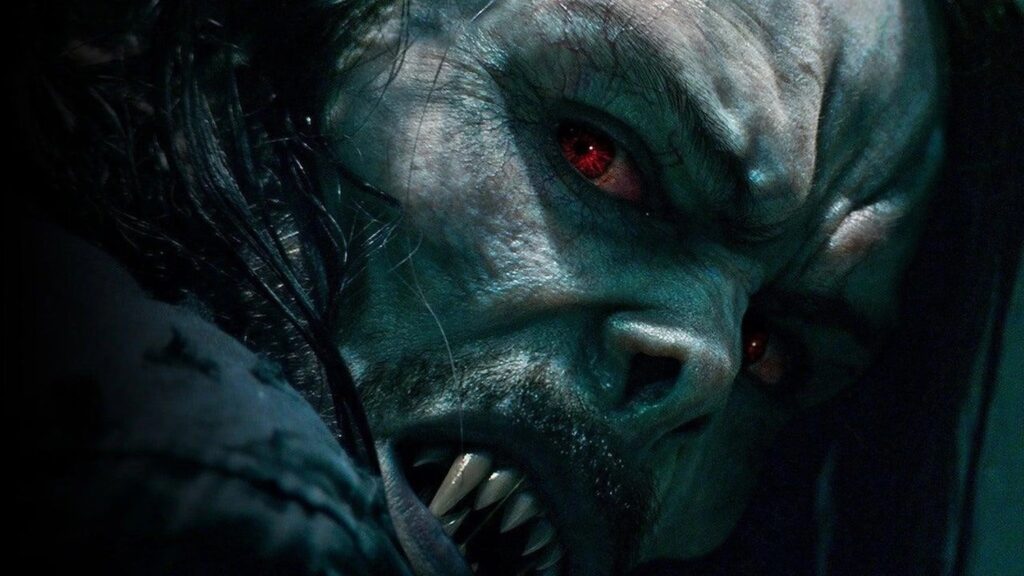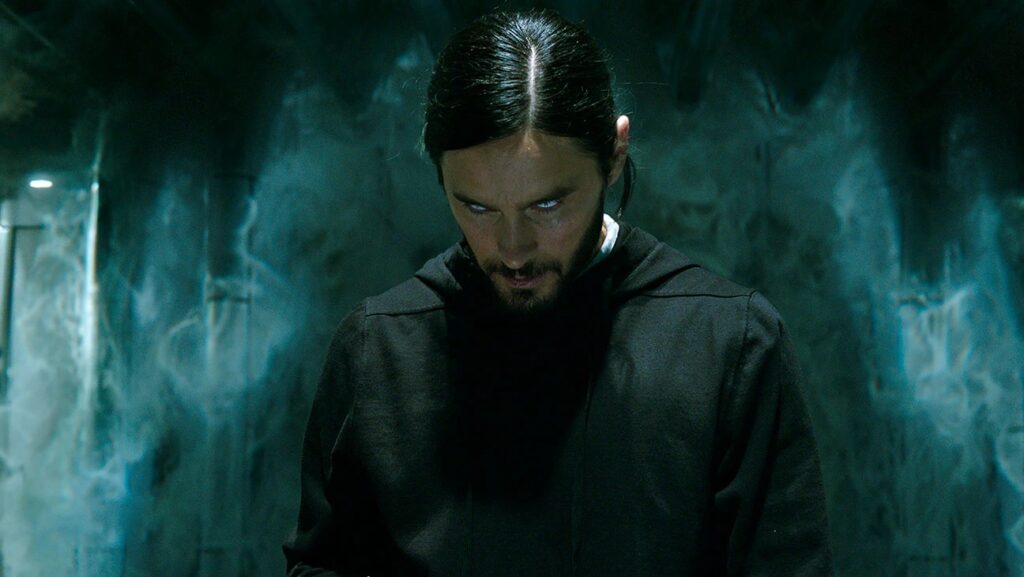Two years’ worth of delays should generate hype for any film, but that hasn’t really been the case for Morbius. What should have been tantalising excitement was quickly substituted with exasperation. The end result is – unfortunately but perhaps predictably – nothing worth cheering for. Morbius may have an intriguing idea at its core, but it fails to make the most of the tools at its disposal.
In a typical superhero story of pseudoscience gone mad, Dr. Michael Morbius (Jared Leto) is a brilliant but elusive scientist who suffers from a rare and debilitating blood condition. As he tries to find a cure for himself and for his best friend and fellow sufferer, Milo (Matt Smith), Morbius inadvertently turns himself into a living vampire who requires blood to survive. Granted superhuman speed and strength, and the ability to use echolocation, he desperately wrestles for control over his bloodlust before anyone else gets hurt.

The film starts off strong, setting up a compelling dynamic between Michael and Milo based in their shared childhood experiences; but things quickly fall apart from there. Morbius’ supporting cast have their talents wasted by a script that seems uninterested in them. Martine Bancroft (Adria Arjona) gets to tell off an arrogant mercenary who assumes she’s a nurse rather than a doctor, but that’s her only real moment of note, otherwise existing solely as a device to facilitate Morbius’ full transformation. Smith gets to ham it up as Milo in detestably groovy fashion, but strip away the entertainment façade and all you are left with is another disabled Hollywood character who’s embittered against the world. The film has little time for anyone bar its protagonist.
Speaking of whom, Leto may not have a particularly shining reputation in Hollywood, yet for all of Morbius’ (many) problems, it’s hard to deny his efforts here. Aside from when he’s tearing various people a new one, Leto’s performance is quiet and almost sensitive, a welcome change from the deranged theatrics that characterise many of his other films. He elegantly telegraphs Morbius’ guilt and regret at his actions – that is, until the film’s close, when the character suddenly changes his mind for no apparent reason. Leto also nails one crucial aspect; he unmistakably looks the part, especially when in full vampire form. The decision to use CGI over prosthetics has seemingly paid off.
Everything else, however, comes up lacking. Morbius struggles to achieve any real traction, hopping between hero origin story, horror movie and action flick without meaningfully committing to any. The visuals used to accentuate Morbius’ powers are distinctive, but rarely successful. The climactic showdown in particular suffers badly; in many of the shots featured in the final ten minutes of the film, it is damn near impossible to follow the action amidst the flying debris and wispy purple smoke. The story and its presentation also leave a lot to be desired: it doesn’t make sense for Morbius to apparently master his new abilities right away, and background characters are left with little to do other than watch and gawp (particularly Tyrese Gibson’s FBI Agent).

The end result is bland and unengaging; neither smart enough to make you think nor fun enough to make you smile. The latter point is a particular let down. If Venom: Let There Be Carnage took Sony’s new wave of Marvel films into a delightfully absurd direction, Morbius very much sits alongside The Batman as a gloomy mood killer of a film, except without any semblance of quality.
The film lacks the gravitas, energy or execution to make it worth seeing, as well as being a disappointing waste of one of Marvel’s coolest characters. Leto does not pull the detestable, overdramatic creep stunt that you might be expecting, but that is the only pleasant surprise on offer. Between the lack of atmosphere, underdeveloped characters and questionable visuals, Morbius just doesn’t know how to hold its audience’s attention. It isn’t even much fun.
Morbius is out in cinemas now.
